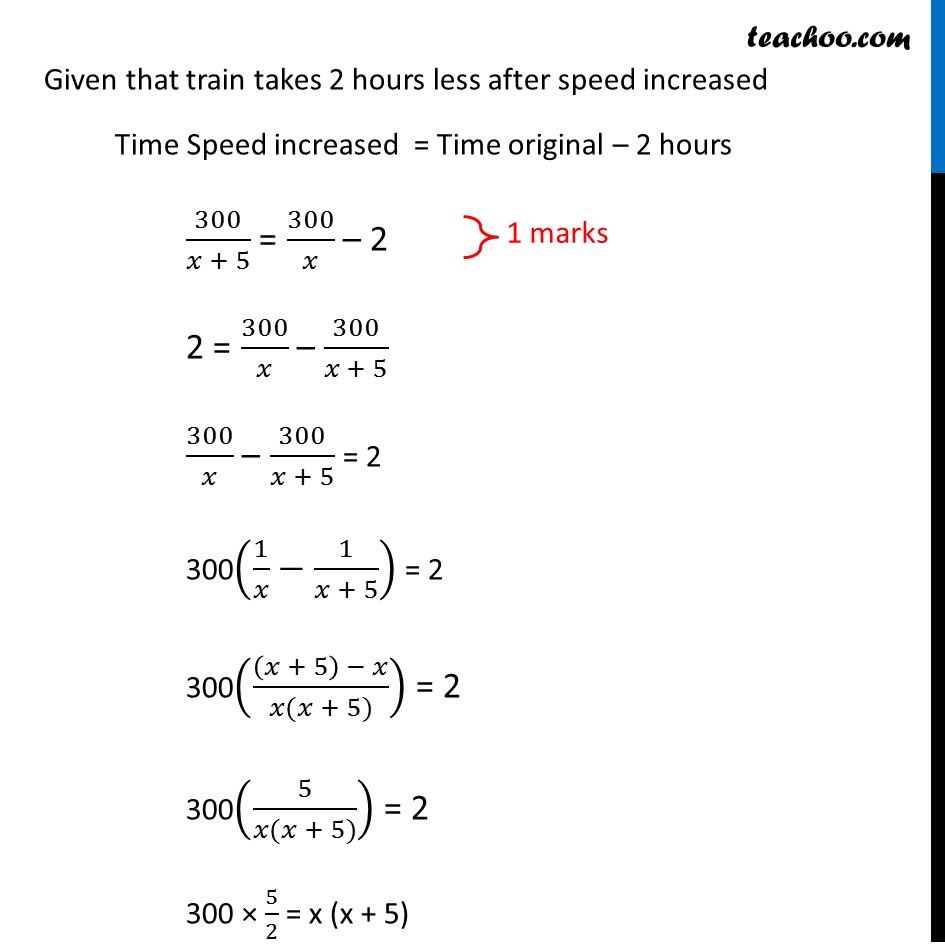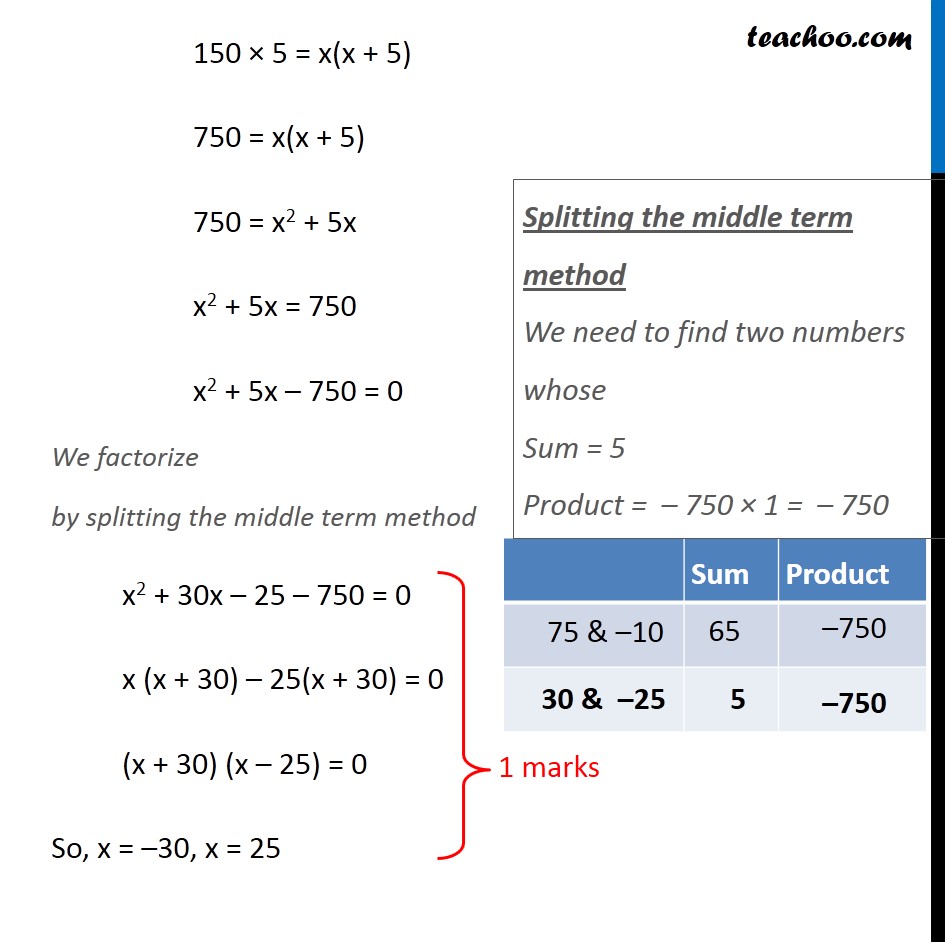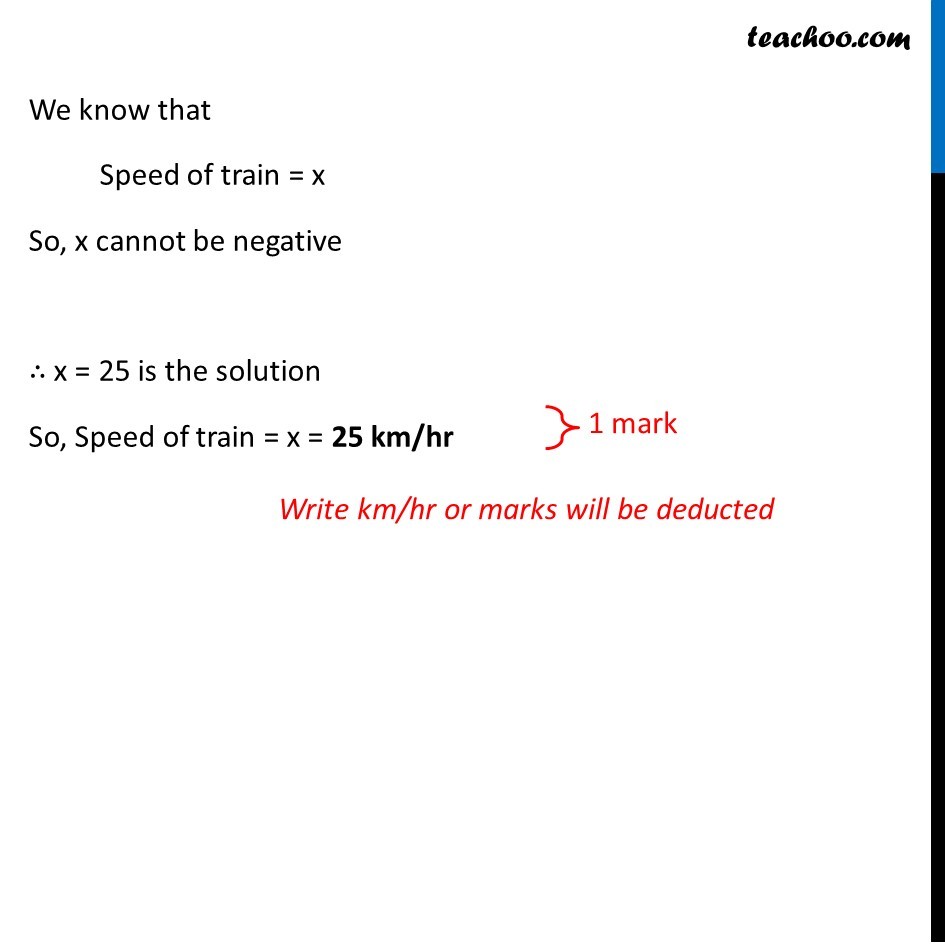Question 23 (OR 1 st question)
A train takes 2 hours less for a journey of 300 km if its speed is increased by 5 km/h from its usual speed. Find the usual speed of the train




CBSE Class 10 Sample Paper for 2019 Boards
CBSE Class 10 Sample Paper for 2019 Boards
Last updated at Dec. 16, 2024 by Teachoo
Question 23 (OR 1 st question)
A train takes 2 hours less for a journey of 300 km if its speed is increased by 5 km/h from its usual speed. Find the usual speed of the train




Transcript
Question 23 (OR 1st question) A train takes 2 hours less for a journey of 300 km if its speed is increased by 5 km/h from its usual speed. Find the usual speed of the train Let the speed of train be x km/hr Normal speed Distance = 300 km Speed = x km/hr Speed = 𝐷𝑖𝑠𝑡𝑎𝑛𝑐𝑒/(𝑇𝑖𝑚𝑒 𝑜𝑟𝑔𝑖𝑛𝑎𝑙) x = 300/(𝑇𝑖𝑚𝑒 𝑜𝑟𝑔𝑖𝑛𝑎𝑙) Time original = 300/𝑥 Speed 5 km/h more Distance = 300 km Speed = (x + 5) km/hr Speed = 𝐷𝑖𝑠𝑡𝑎𝑛𝑐𝑒/(𝑇𝑖𝑚𝑒 𝑆𝑝𝑒𝑒𝑑 𝐼𝑛𝑐𝑟𝑒𝑎𝑠𝑒𝑑) x + 5 = 300/(𝑇𝑖𝑚𝑒 𝑆𝑝𝑒𝑒𝑑 𝐼𝑛𝑐𝑟𝑒𝑎𝑠𝑒𝑑) Time speed increased = 300/(𝑥 + 5) Given that train takes 2 hours less after speed increased Time Speed increased = Time original – 2 hours 300/(𝑥 + 5) = 300/𝑥 – 2 2 = 300/𝑥 – 300/(𝑥 + 5) 300/𝑥 – 300/(𝑥 + 5) = 2 300(1/𝑥−1/(𝑥 + 5)) = 2 300(((𝑥 + 5) − 𝑥)/(𝑥(𝑥 + 5))) = 2 300(5/(𝑥(𝑥 + 5))) = 2 300 × 5/2 = x (x + 5) 150 × 5 = x(x + 5) 750 = x(x + 5) 750 = x2 + 5x x2 + 5x = 750 x2 + 5x – 750 = 0 We factorize by splitting the middle term method x2 + 30x – 25 – 750 = 0 x (x + 30) – 25(x + 30) = 0 (x + 30) (x – 25) = 0 So, x = –30, x = 25 Splitting the middle term method We need to find two numbers whose Sum = 5 Product = – 750 × 1 = – 750 We know that Speed of train = x So, x cannot be negative ∴ x = 25 is the solution So, Speed of train = x = 25 km/hr We know that Speed of train = x So, x cannot be negative ∴ x = 25 is the solution So, Speed of train = x = 25 km/hr